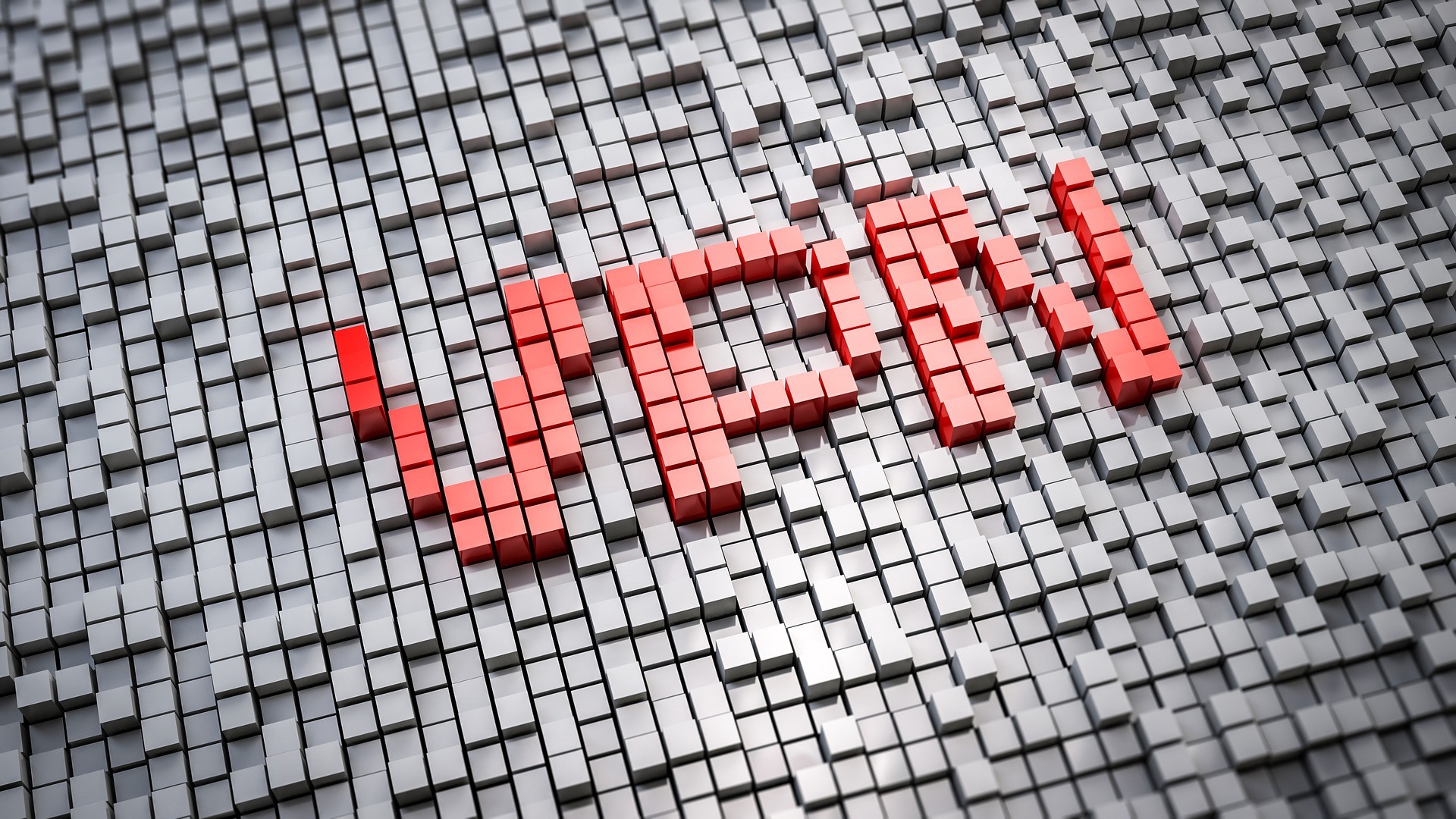What is a VPN?
A VPN is a Virtual Private Network. It’s a service you can use to make your internet connection private and secure.
For example, you can ensure that no-one can see what websites you’re visiting or what files you’re downloading. Or you can access websites that are blocked in your country.
It does this by encrypting all the data you send and receive across the internet (so prying eyes can’t read it), and by hiding your device’s IP address (so prying eyes can’t identify you).
How does a VPN work?
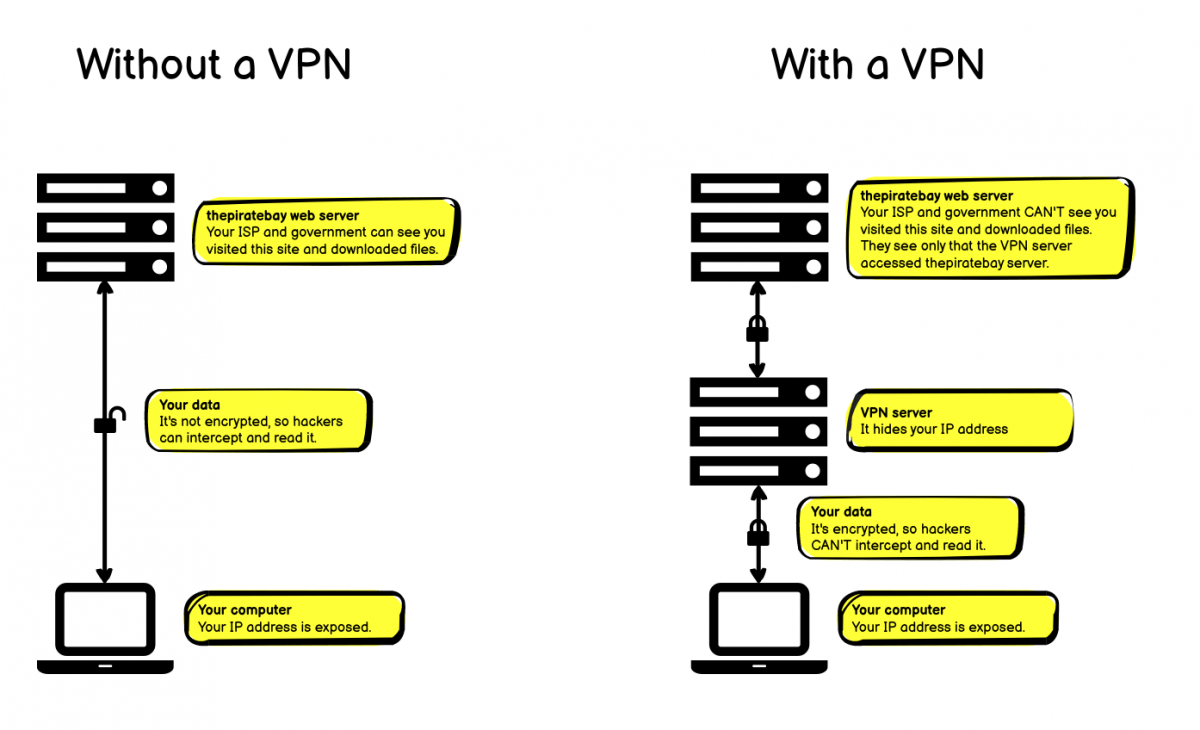
1. It hides your IP address
Without a VPN, when you visit a website, the website records your IP address. (This is the address assigned to you by your internet service provider (ISP).)
But when you use a VPN, you’re connected to the internet via a VPN server, so the website sees only the IP address of the VPN server, not your IP address.
2. It encrypts your data
When you browse the web, your computer sends and receives data across the internet.
Without a VPN, this data is unencrypted (so it’s vulnerable to hacking). With a VPN, and your connection is encrypted. It’s like sending your data through an impenetrable tunnel.
Why should you use a VPN?
1. Protect your data
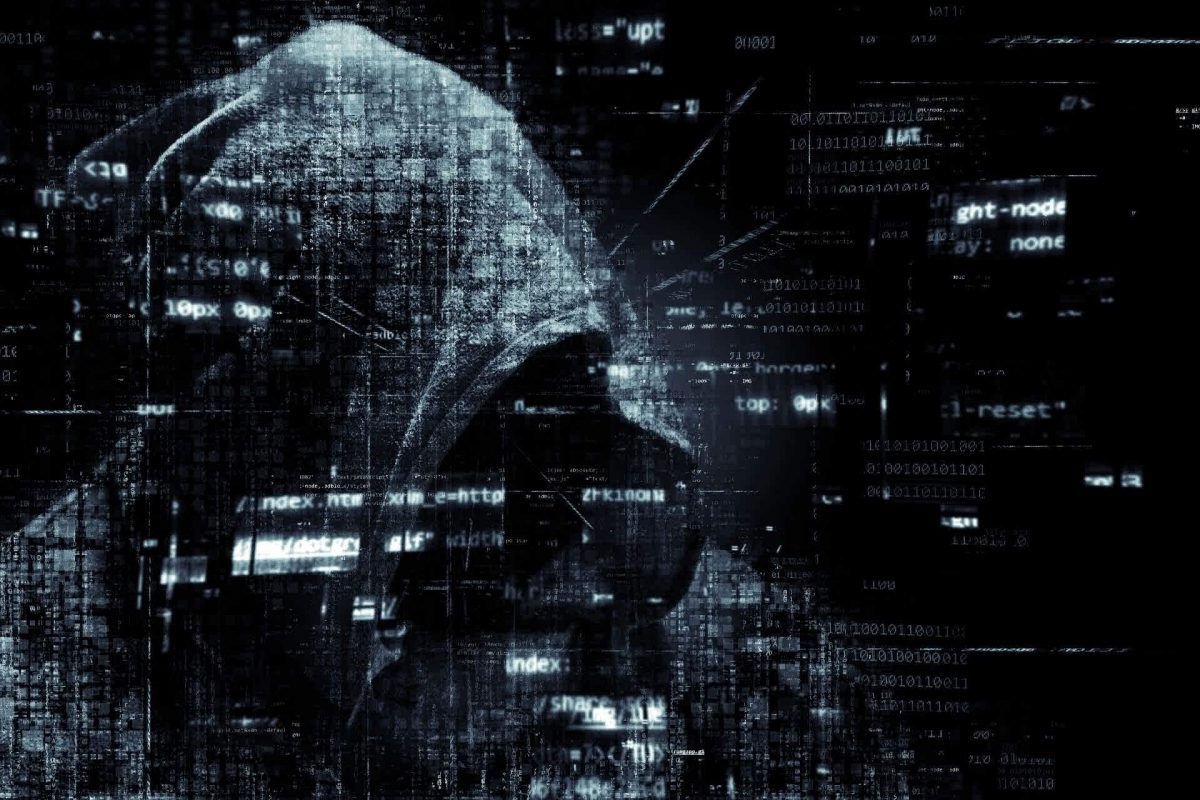
When you browse the web, your computer sends and receives data across the internet. Without a VPN, this data is unencrypted, so if a hacker intercepts it, they’ll be able to read it.
With a VPN, no one can read the data you send and receive across the internet.
2. Protect your privacy
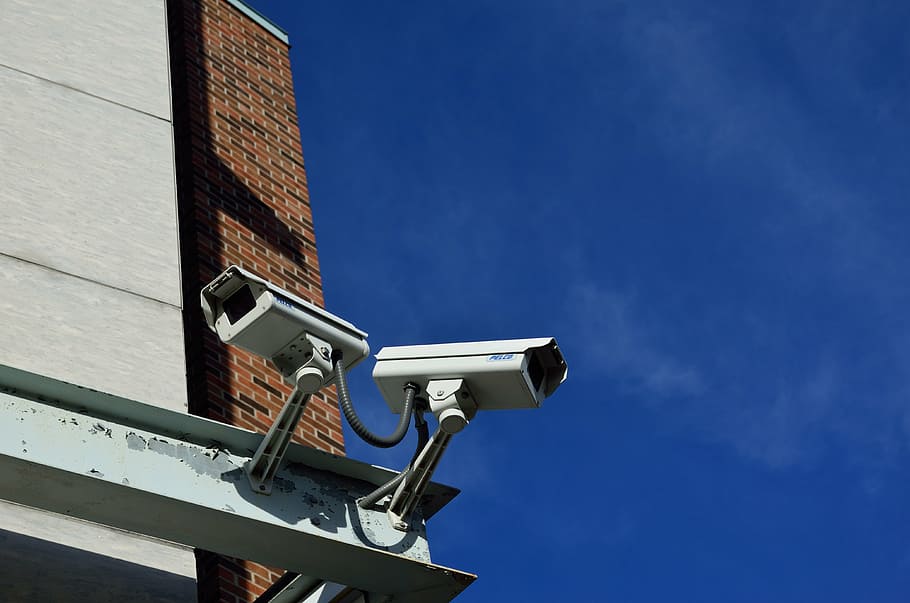
Without a VPN, your internet service provider (ISP) can see all the websites you visit and all the data you download from them.
If you Google erectile dysfunction, then make an online booking to visit a GP, then buy some Viagra online, they’ll be able to see and join the dots.
Similarly, the owners of the websites you visit can see that you visited.
With a VPN, no one can track your internet activity.
3. Safely download pirated content

Downloading copyrighted shows, movies and music is illegal, and can attract significant penalties. All the major studios actively track the IP addresses of the computers illegally downloading their works. They then contact the associated internet service providers (ISPs) and get them to trace that IP address back to you.
In many countries, ISPs are legally obligated to tell the studios who you are. And even in countries where they’re not legally obligated, many ISPs will share your details anyway, simply because it’s easier.
With a VPN, it’s impossible for your ISP to trace the IP address back to you. So even if a movie studio (or law enforcement) forces them to disclose your data, they literally can’t!
4. Access content that’s unavailable in your country
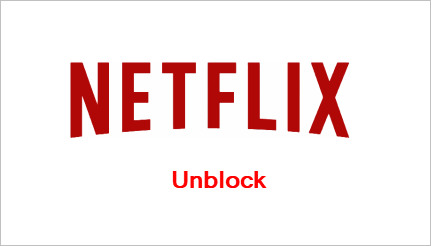
Many services (e.g. Netflix) restrict content to certain countries. So if you’re in Australia, you can see only the content that Netflix makes available in Australia. You can’t see all the content that’s available in the US.
With a good VPN, you can choose to connect to a VPN server in America. Netflix then thinks you’re in America, and shows you all the content that’s available to anyone in America.
5. Bypass government censorship
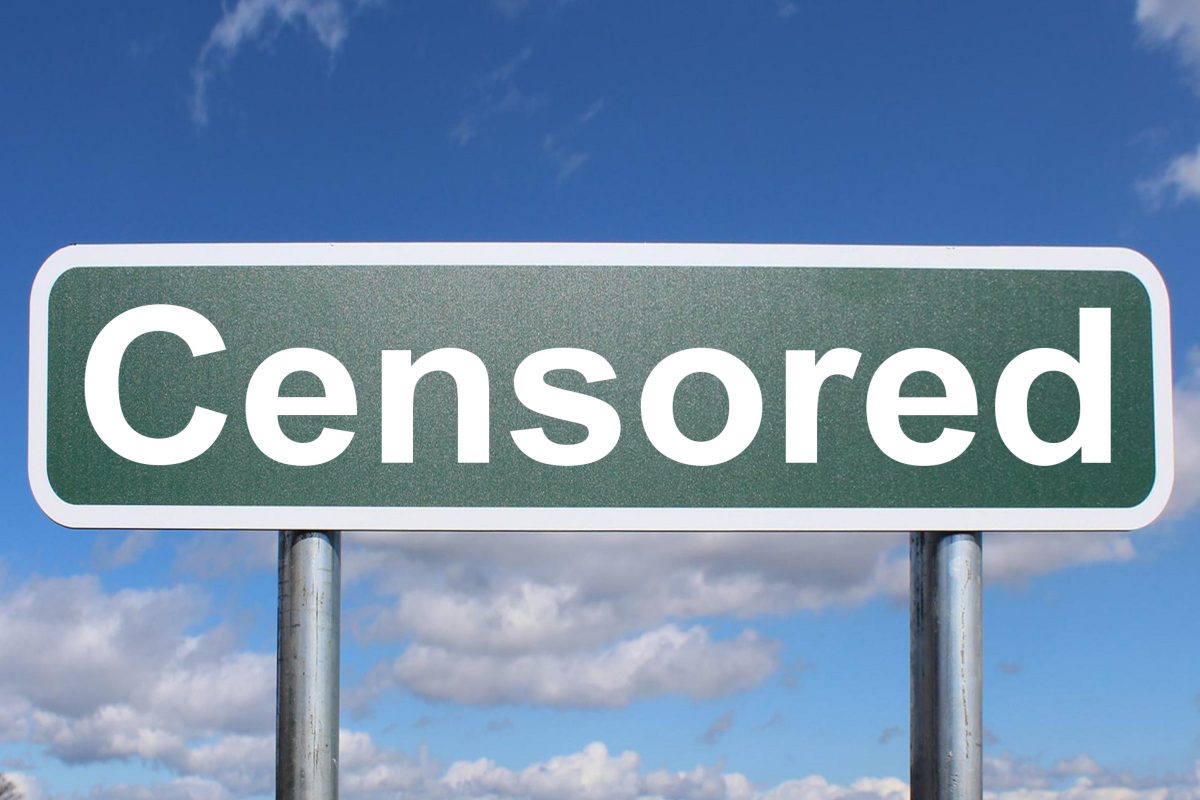
Some schools, companies and governments block certain websites in order to censor content they judge to be undesirable.
They use various methods to block content, but most can be circumvented with a VPN.
Most VPNs run VPN servers in various locations around the world. Usually all you have to do is identify a country that allows the content you’re interested in, then connect to a VPN server in that country.
6. Protect your privacy on a public WiFi
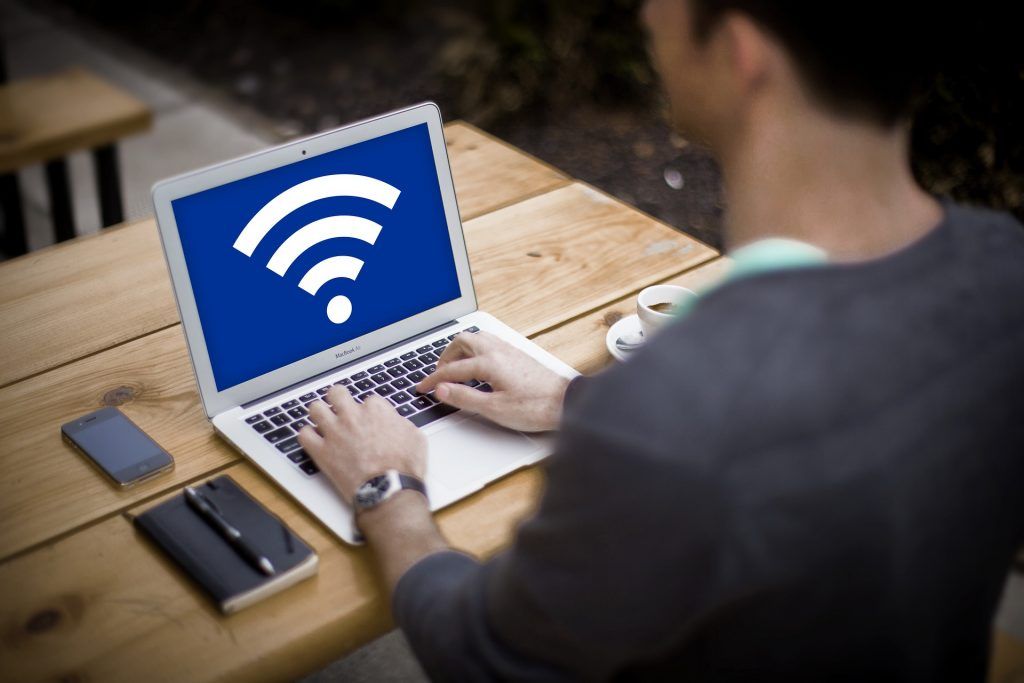
Some public places (e.g. hotels, cafes and airports), provide free WiFi to allow their patrons and visitors to connect to the internet.
This can be very convenient, but it can also be very risky, because about a quarter of public WiFi hotspots don’t use any kind of encryption. This means a hacker can intercept and read any information you send or receive over the internet (e.g. banking passwords, social network login details, company login details).
A VPN eliminates this risk by encrypting your connection.
Our favorite VPN
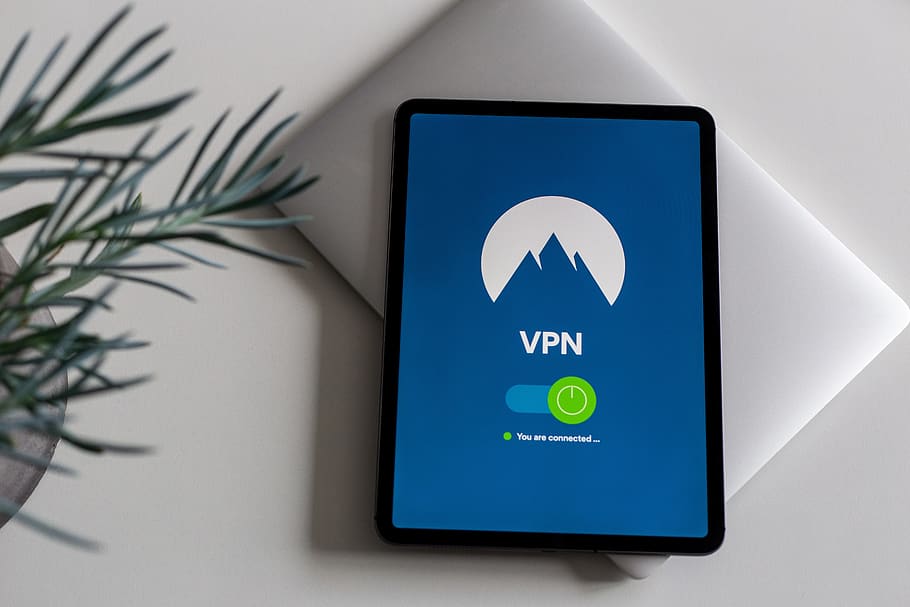
There are many VPN services out there (including a lot of free ones). But as with most things in life, when it comes to VPNs, you get what you pay for. Free VPNs are never as good as paid ones; either they’re not as fast or reliable, or they can be forced to share your details with the authorities.
Our favorite VPN is NordVPN. It’s fast and cheap, and – most importantly – it will keep your IP address hidden.

Do you know your ISP monitors your Internet traffic and can track your IP address?
Access torrent sites safely and anonymously with NordVPN.
Hopefully you find this post helpful. If you have any questions, ideas or suggestions, feel free to leave your comments below. Enjoy using a VPN on your internet journey.






